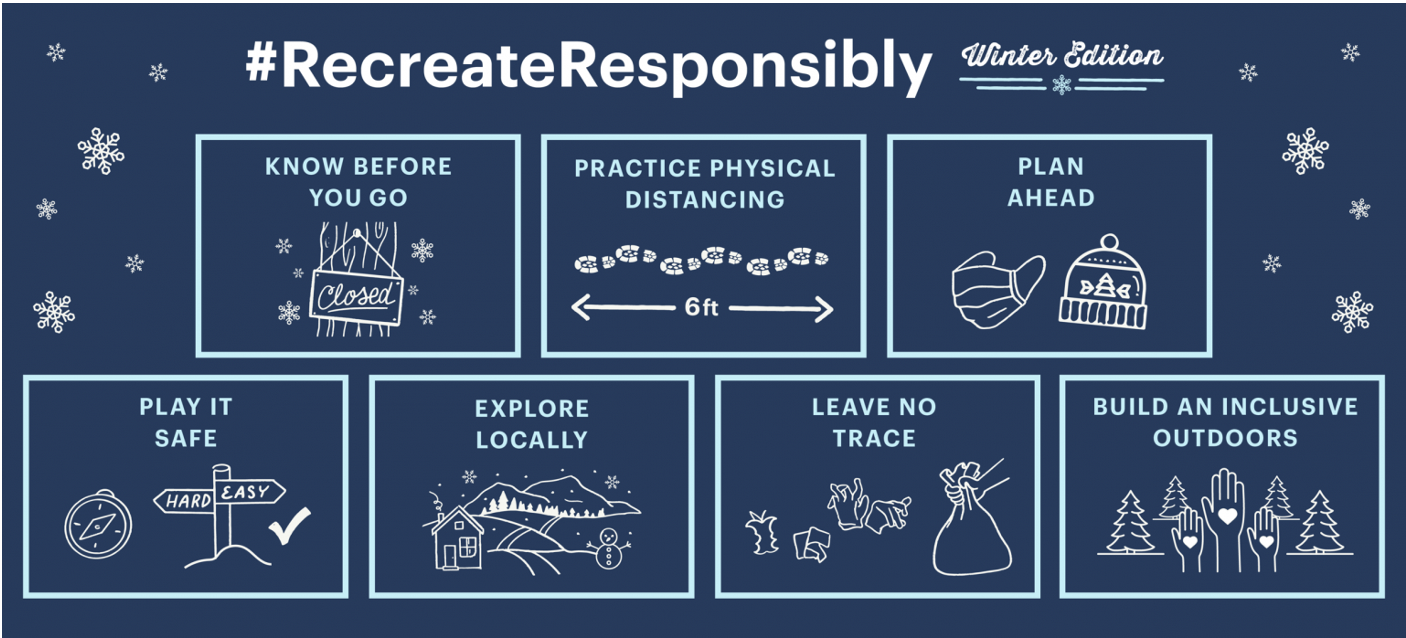Colorado Backcountry Winter Safety Awareness Week Invites Constructive Commentary
For many skiers and snowboarders, this season more than most may be a time when they’ll earn their turns. Spurred by the end of last season’s resort closures from the global pandemic, new reservation systems and limited access to controlled ski zones, many outdoor enthusiasts are seeking backcountry touring options to still get their powder turns in this year. The increased sale of backcountry gear since March is proof that experienced adventures and new timers are hoping for no lift lines this season.
With an expected rise in backcountry travel this winter, incentives across Colorado and the U.S. are urging recreationist to stay safe while enjoying public land. Incentives such as the Colorado Backcountry Winter Safety Awareness Week and Ski Kind are helping educate backcountry users on things to do this winter to keep everyone safe.
Winter Wildland Alliance is a non-profit organization dedicated to promoting and preserving winter wildlands and a quality human-powered snow sports experience on public lands through education, outreach and advocacy. Todd Walton, executive director of Winter Wildland Alliance, says as avalanche safety courses fill up, it’s become apparent that many people are looking at this year as a "less resort" experience.
The impacts of multiple users finding untracked powder in the backcountry goes beyond recreation. Walton says these wild spaces will encounter problems through effecting wildlife habitat and watershed implications. Along with the human factor … waste (including human waste), inexperienced skiers going in unsafe zones, different user group conflicts and the potential risk of human triggered avalanches — these are all issues Walton believes will have a major impact on a fragile ecosystem.
“It's really a multifaceted issue of being aware of what the backcountry is and what it means to recreate there,” Walton says. “There’s a level of responsibility — to the backcountry community and the resource — that we all have”.”
Walton recommends joining Winter Wildlands Alliance and to make it a priority to understand what public land you are recreating on and protect it.
Colorado Search and Rescue (CSAR) respond to the increased usage and potential dangers by taking a multifaceted approach to this winter. Jeff Sparhawk, president of CSAR says “they are working with SAR teams and sheriffs to develop Covid-specific pre-plans to be ready for an increased number of SAR incidents or more complex SAR incidents.”
Sparhawk recommends getting educated about avalanche dangers, reading the forecast, getting the safety equipment and practicing with it.
“Be respectful to wildlife, the land and each other,” he adds. “Recreate within your skill level and avoid crowded areas. Get out with a seasoned mentor or hire a guide.”
Even experienced backcountry users are at risk this winter with more crowding of shared spaces pushing powder hounds further away from popular trails. Colorado Avalanche Information Center studies show that most avalanche accidents happen to somewhat experienced backcountry users and not rookies. Traveling to harder-to-access areas has the potential to increase strain on SAR resources.
“There was recently a study showing that after Covid, when we were concerned about newbies in the backcountry, the accidents primarily involved experienced users,” Sparkhawk says. “Complacency can be a problem. There is also a human error factor called ‘halo effect,’ in which people assume a particular terrain choice is safe because they're following someone with a lot of experience, so they don't even question it.”
Sparkhawk says he believes that our beloved backcountry areas provide many different experiences for users to enjoy and is encouraged to see so many people getting outside. He does advise spending time in the backcountry, safely, as a rejuvenating escape this year.
“We all have so many stressors that we hopefully don’t need to add to them with audacious recreation goals,” Sparkhawk says. “I love to challenge myself and get after it as much as anyone but now is not the time. Mellow tours, great views, and, as allowed, spending time safely distanced with friends in the backcountry are my goals.”
There’s no doubt of the benefits fresh air, scenic views and exercise can bring to individuals and a population as a whole. This conversation is a reminder to always stay safe, informed and be courteous of others.
“More people doing so means that they are engaging in fun on public lands,” add Walton, “and hopefully will want to protect them, steward them and advocate for these places.”


